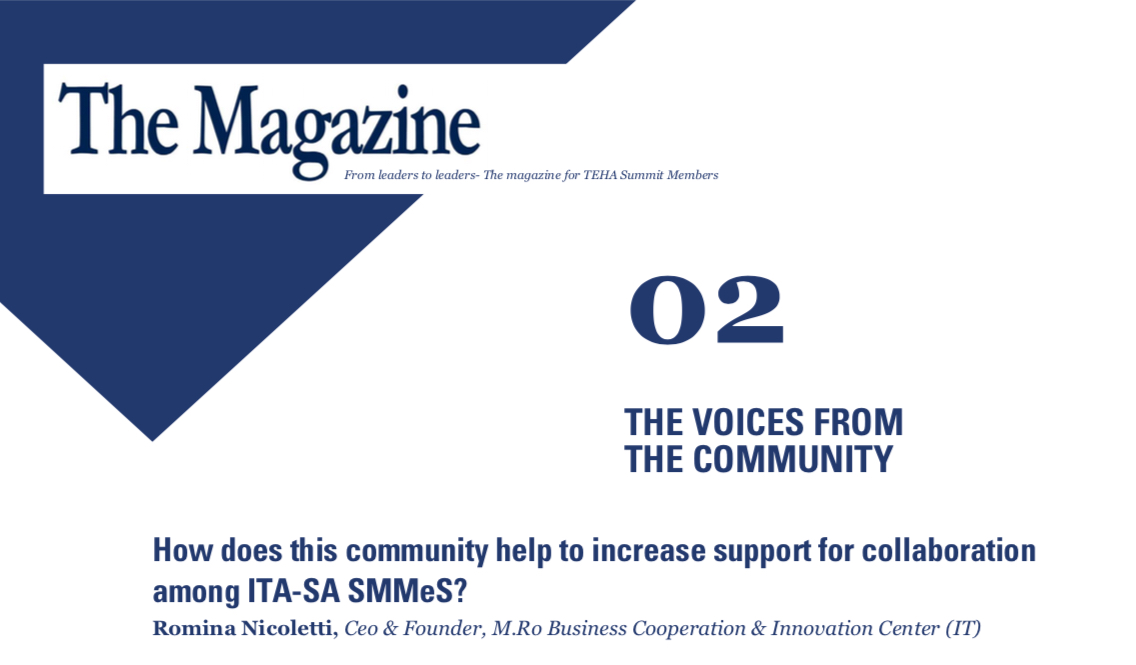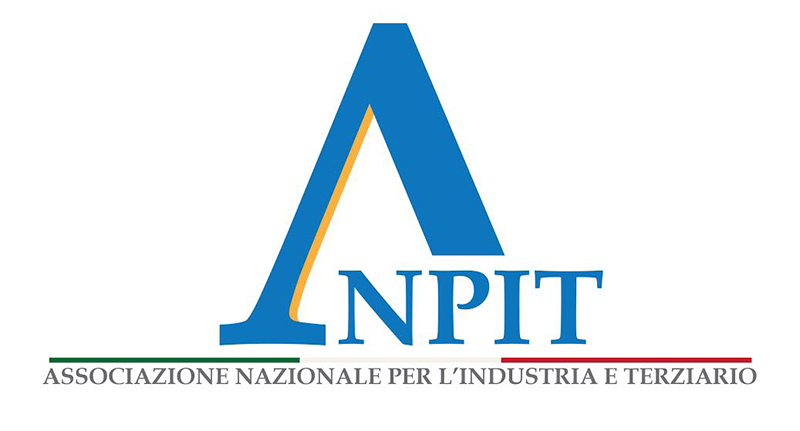|
Romina Nicoletti, Ceo & Founder, M.Ro Business Cooperation & Innovation Center (IT) At moment of great debate for the political-eco- nomic relationship between Italy and South Africa and during South-Africa Italy Summit we have the possibility to compare the realities of these two gre- at countries. The meeting among high level institutional re- presentatives and stakeholders of the international economy, is finalized to achieve new horizons of the economic cooperation. I want to set the attention to the fact that in both these countries there is a strong predominance of SMMEs. The 91% of the entities in South Africa are SM- MEs, of which 61% contribute to the country’s em- ployment statistics. Of the 91%, 52–57% contribu- tes to the country’s GDP. This study emphasises the importance of SMMEs to any country’s growth. The economic boom in many countries has been due to their SMMEs market. The Italian industrial model is known worldwide as a successful example of endogenous development based on SMMEs strongly rooted in their communi- ties The growth-generating potential of SMMEs has been the subject of many academic studies. Althou- gh there is no general agreement in the literature on whether SMMEs generate more growth than large enterprises, some recent studies suggest that large enterprises are more affected by international busi- ness cycles than SMMEs are. An examination of National and Regional SMMEs policy initiatives between Italy and South Africa hi- ghlights several general weaknesses: -lack of coordination among initiatives; -lack of monitoring and evaluation. In my opionion, the cooperation between the di- plomatic-institutional, and the economic world must strengthen the creation of more specific programs to stimulate the collaboration of the small and micro enterprises. The 91% of the entities in South Africa are SMMEs, of which 61% contribute to the country’s employment statistics. To find common solutions to sustain the enter- preneurs for international commercial development and intensify the relationships of reciprocity, in other words we should Integrate the national policies af- fecting SMMEs. |
|
18 |
From leaders to leaders- The magazine for TEHA Summit Members
As we know the difficulty to go abroad for SMMEs is due, for the most part, to the lack of internal human resources allocated to the export divisions.
Now in Italy both Regional and National actors of the Public Administrations are directing investment funds to SMMEs with programs of Temporary Expert Manager that can support them to develop a proper and efficient entrance strategy, analyzing the destina- tion market and the internationalisation process.
It would be desirable that during the next Summit we can also reflect how to act practically in the near future to create a network of advisors and agents that can become the “operational tool “both for the Italian enterpreneurs and South Africans to develop ad hoc projects aimed at improving the local and National, International competitiveness level.
We must focus our attention on the necessity to “make system” and to pursue the strategic objective to “tighten bonds” because the concept of competi- tion has been supplanted by support and alliance. To help shape and contribute to a growing body of know- ledge on how to change economic cooperation at the system or istitution level.
We should implement a project for ITA-SA compa- nies to support the access to markets and fostering B2B communication-information in every field so as to strengthen the National/European/International dimension of the enterprise. To improve the visibility of professionals and SMMEs, to increase the number of Joint Ventures, Partnerships, Transnational and Inter-Regional Cooperation, to enlarge the diversifica- tion of talents and of financing tools, to improve the competitiveness and the interaction among internatio- nal markets and finally to support the research of new commercial and investment opportunities.






